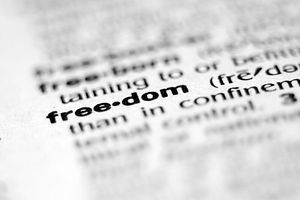It’s late January and final reports on 2015 are coming in. Human Rights Watch, Freedom House, and Transparency International released reports today on human rights, freedom, and corruption, respectively. The three reports tell largely the same story about Central Asia: few democratic gains, severe violations of rights, and ineffective campaigns to combat corruption.
Human Rights Watch released its 2016 World Report, which catalogues the evolution (or devolution as the case may be) of human rights in countries around the world in the past year. The events detailed in the sections on Kazakhstan, Kyrgyzstan, Tajikistan, Turkmenistan, and Uzbekistan will not be a surprise to regular readers of Crossroads Asia.
Kazakhstan prioritized economic development over political reforms in 2015 but ultimately closed out the year with grim prospects in both categories. Uzbekistan’s human rights record remains “appalling” and Turkmenistan’s “atrocious.” Tajikistan cracked down on political opposition and tightened the reins on religious communities. Kyrgyzstan, while holding competitive elections, experienced some new setbacks with regard to treatment of human rights groups.
In a regional summary circulated by HRW, the Europe and Central Asia director, Hugh Williamson, said “Central Asian governments are becoming increasingly intolerant of dissent, criticism, and human rights scrutiny – an alarming trend.”
Freedom House, which released its annual Freedom in the World report, listed Turkmenistan and Uzbekistan among the “worst of the worst” when it comes to political rights and civil liberties. The Freedom in the World report ranks 195 countries and split them into three categories: Free, Partly Free, and Not Free. Of the five states in Central Asia, only Kyrgyzstan avoided the lowest category; although the report had criticism for the otherwise praised parliamentary elections, saying they “served mainly to confirm the status of a dysfunctional if pluralistic political system.”
Transparency International, in its annual Corruption Perception Index, placed Turkmenistan and Uzbekistan in the bottom tenth of their rankings. Turkmenistan shares 154th place (out of 167) with Eritrea, Yemen, and Syria. Kazakhstan and Kyrgyzstan placed the highest (both at 123rd of 167), just barely escaping the bottom quarter; Tajikistan came in at 136th. Transparency International points out that Central Asia governments are willing to pass corruption laws, but are unable or unwilling to implement them.
As Transparency International notes in its press release, the lowest ranked countries in terms of corruption are characterized by conflict and war, weak institutions and poor governance, but they also experience “a lack of independence in the media.”
For an illustration of the link between corruption and human rights: One of the things that distinguishes Sweden (ranked 3rd in Transparency’s Index, making it one of the least corrupt places on the planet) from Uzbekistan, is a media free to air accusations of immense corruption at a major company without fear of reprisals. In September 2012, an investigative program running on Swedish public television aired a documentary (available here with English subtitles) alleging that TeliaSonara, a Nordic telecom giant, made payments to a company linked to Gulnara Karimova for access to the Uzbek market. The company then allowed security services to connect to their networks for surveillance. In the ensuing years, Swedish police opened an investigation into the TeliaSonara’s dealings, several TeliaSonara executives were fired, and the company announced its intent to withdraw from the entire Eurasian market.
Media freedoms are fundamental to ensuring transparency and accountability, which are key to not only combating corruption but pushing back against the pressures of politics and greed that spawn corruption in the first place.
































